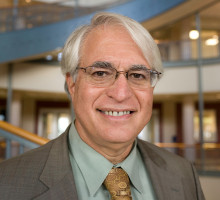
Johns Hopkins UniversityEst. 1876
America’s First Research University
Unwelcome Guests

By Steven Diner
There is extensive public discussion today about how colleges decide whom to admit and about the need for affirmative action to ensure minority access to higher education. Colleges today are ranked not only by academic selectivity but by their racial and ethnic diversity. Most university leaders consider high diversity rankings very desirable.
But race, nationality and religion have been integral to college admissions in the United States since the eighteenth century. At the turn of the twentieth century, colleges and universities sought to grow, which required increasing student enrollment. Many institutions liberalized their entrance requirements and expanded their curricula to attract more enrollees. Most college leaders did not anticipate that these reforms would bring in growing cadres of racial and ethnic minorities. When minority applicants increased, they feared that the presence of “undesirables,” even in limited numbers, would drive away traditional Anglo-Protestant college students.
After World War II, many higher education analysts asserted that racial, ethnic and religious diversity contributed to a high-quality college education. A 1953 report on medical school preparation, for example, asserted that “A doctor coming from a Protestant middle-class background … may find it helpful in treating a family of immigrants from Italy to draw on his college experiences with classmates from families of Italian background.”
A 2019 study by the American Council on Education reported that people of color made up 46 percent of undergraduate college students in the U.S. Many commentators view this increase as a result of the nation’s continuing commitment to civil rights. Many others insist that it results from the unfair discriminatory impact of affirmative action. Just this week, the U.S. Supreme Court agreed to review lower court decisions on the legality of affirmative action admissions practices at Harvard and the University of North Carolina. So public discussion and debate on considering race in college admissions will continue and intensify.
How one defines “diversity” is a subject of considerable debate today. Are the categories Black, white, Asian, Hispanic and Native American too broad to provide a meaningful description of the U.SA, population? Should religion be included in discussions of diversity? Should diversity include people who are LGBTQ or those who have disabilities? These are important issues, but I believe that race is the core issue.
My friend and colleague Harold Wechsler, a leading scholar of American higher education, spent many years studying this. A professor of education at NYU, he collected massive numbers of newspaper and magazine articles, reports prepared by colleges and by government and professional associations, as well as biographical reminisces of faculty, students and university leaders. Wechsler wrote a draft of over 600 pages, which I am sure he intended to consolidate before submitting it to his publisher, Johns Hopkins University Press.
Harold Wechsler died unexpectedly one night in 2017. Johns Hopkins Press and Harold’s brother Robert Wechsler asked me to reorganize and edit the manuscript so that it could be published as a book. As a historian of American higher education, I was delighted to do this. The materials Wechsler collected are engrossing, and they shed light on the continuing debates over the consideration of race in college admissions.




